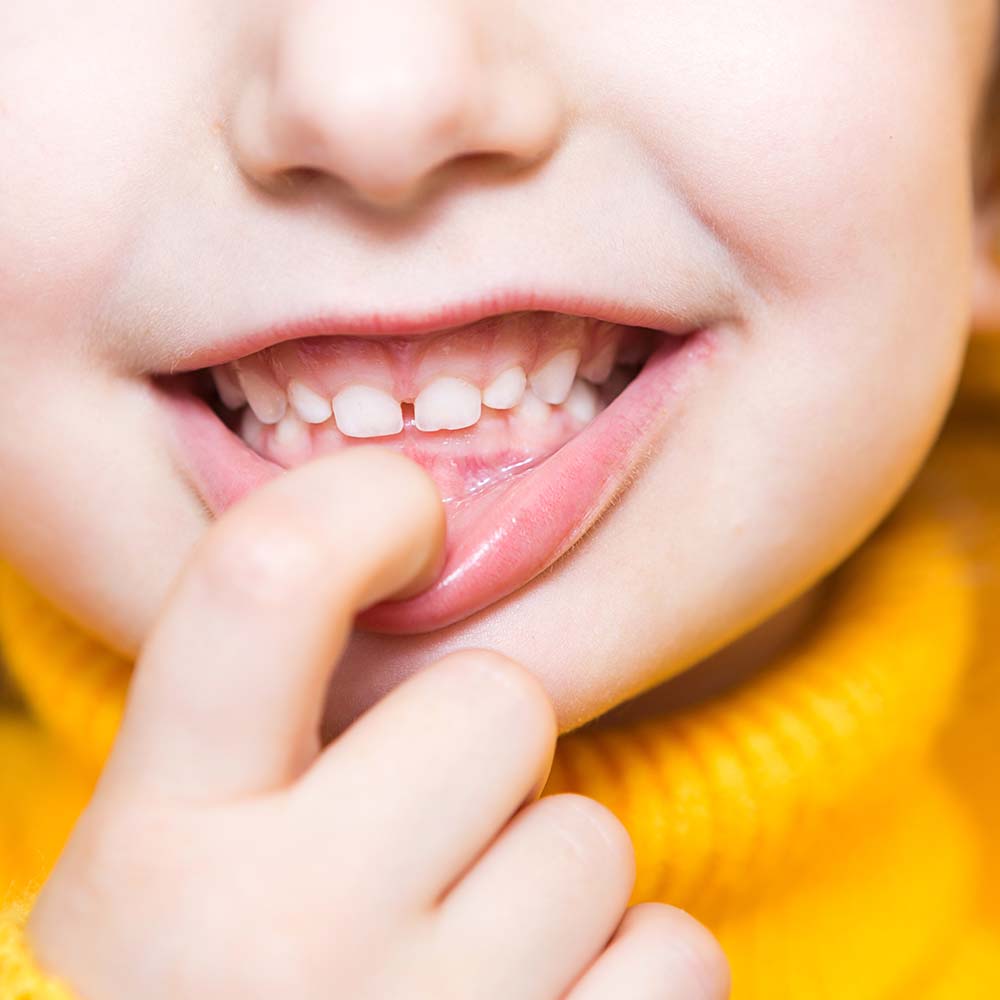Bite problems can be corrected by braces in both children and adults. This can create changes in your bite that lead to difficulties with chewing or speaking. Bite problems are correctable through braces and even dental implants, depending on the severity of the issues it creates. The most common bite problems include overbite, underbite, open bite, crossbite, and crowding.
1. An Overbite
An overbite occurs when your upper front teeth fit inside your lower front teeth. Overbites are relatively rare, but most of us have some slight overlapping of our upper and lower front teeth. The main reasons for an overbite are frequent use of baby bottles, utensils, and soothers and dietary changes that favor soft foods.
The upper jaw extends too far forward and covers any or all of the lower front teeth. This interferes with normal chewing function as well as speech development. As a child grows, an overbite will get worse unless treated. In some cases where the problem cannot be corrected by treatment, an overbite can fix it with surgery to reposition the jaw bone. Extreme overbites can lead to gum irritation, tooth decay, and early enamel loss.
2. An Underbite
An underbite occurs when the lower front teeth extend beyond the upper teeth. Underbites are common but may make it difficult to bite certain foods or talk. They also tend to have a smaller jaw at the top and wider at the bottom than average. This is why people with underbites often have a noticeable dip at the corner of their lips.
The lower jaw protrudes, covering the upper front teeth. This can affect the way a person talks or bites food. In some cases, the upper jaw is short and curved, while the lower jaw is longer and straighter. The most common cause of an underbite is too much pressure that comes with sucking on a bottle or pacifier. This often happens when baby teeth are falling out and permanent teeth are pushing up to take their place.
Some people have an underbite due to how their jaws form when born. An underbite is a more serious problem than an overbite; that’s why it’s fixed during childhood. In many cases, an underbite can be corrected through braces to reposition the lower jaw forward and improve the space between upper and lower teeth.
3. A Crossbite
A crossbite occurs when at least one tooth of the lower jaw is too far forward or behind the other teeth. A misalignment of the bone usually causes this. A crossbite can also occur if your upper teeth are not aligned vertically with your lower teeth.
The lower jaw extends too far out on one side and too little on the other side of the mouth. A crossbite affects normal chewing function, and speech development causes cheek biting and makes it difficult to close the mouth. In some cases where the problem cannot be corrected by treatment, it can be fixed with surgery to reposition the jaw bone. There is the posterior and anterior crossbite.
4. Crowding
Crowding occurs when there’s not enough room for all the teeth in the jaw. Crowding is a common problem since baby teeth tend to fall out before permanent teeth grow. When this happens, permanent teeth may get crowded and cause bite problems.
Teeth are crowded in the mouth with little space between them. A person with this condition may have difficulty chewing, speaking, or closing their mouth. Crowding is a severe condition that must be treated. Crowding can be dealt with through orthodontics or braces.
5. An Open Bite
An open bite occurs when your upper and lower front teeth fail to meet when you close your mouth. An open bite often makes it difficult to chew correctly and causes food particles to collect in the mouth after eating.
The upper and lower front teeth don’t fit together during the normal chewing motion. This can make eating or opening the mouth difficult and create speech impediments such as lisping. An open bite can be caused by genetics or bad habits like thumb sucking. There are the anterior and posterior open bites.
6. Protrusion
Informally known as buck teeth, it affects the front incisors instead of the whole upper teeth. The protruding teeth press into the lips resulting in irritation. This makes the teeth more susceptible to chipping, cracking, and severe breakage.
Teeth often get crowded together or crooked, causing problems during eating or speech development, oral dryness, and unwanted changes in facial shape. It gives the face a long and narrow shape.
7. Spacing(Gaps)
This can trap food particles and plaque, causing dental problems such as decay or gum disease. Gaps result from missing teeth, undersized teeth, or oversized jaws.

Can Bite Problems Be Treated in Adulthood?
There are three main options: braces, dental implants, and surgery. Traditional braces are the most common treatment for bite problems in adults. They can help align teeth in the front of the mouth and correct any overlapped or missing teeth. Dental implants usually replace the missing teeth with cemented inserts made from titanium. Implants can also be used to reposition an overbite or underbite by surgically fastening them into the jaw bone in front of specific teeth.
Surgery can be used to reposition the lower jaw and improve the space between upper and lower teeth. Treatments must begin early to prevent permanent dental and speech problems if a child is diagnosed with a bite disorder. Fortunately, most bite disorders are treatable with proper care from a orthodontist and orthodontist such as Vondran Orthodontics in Little Rock AR.
How Can an Orthodontist Help?
The orthodontist can determine if your bite is normal by looking at your teeth and examining the shape of your face. Not all bite problems involve the teeth. Some issues may be related to an abnormality in the lower jawbone, and others might be caused by a physical problem with how your mouth moves. Your orthodontist can perform certain tests to locate specific areas where the problem might be.
If a bite problem can be corrected by treatment, the orthodontist can suggest several options to fix the problem. If another type of health care professional is involved, the orthodontist can help to coordinate treatment.
How Can I Prevent Bite Problems?
The best way to prevent bite problems is to visit Vondran Orthodontics regularly for checkups and cleanings. You should have your teeth cleaned every six months by a dental hygienist so that they can look for emerging problems early. Your dentist will examine your teeth, gums, and mouth during checkups. If a problem is found, your orthodontist will recommend the appropriate treatment.
In conclusion, properly and regularly cleaning your mouth is essential to help prevent the occurrence or re-occurrence of bites. With the appropriate attention and care, your bite should continue to improve; however, in some cases, a minimal amount of bite correction can be accomplished with a simple adjustment. The orthodontists will provide you with information on maintaining a healthy mouth through the use of flossing and brushing.
If you have any further questions, feel free to contact us any time!

